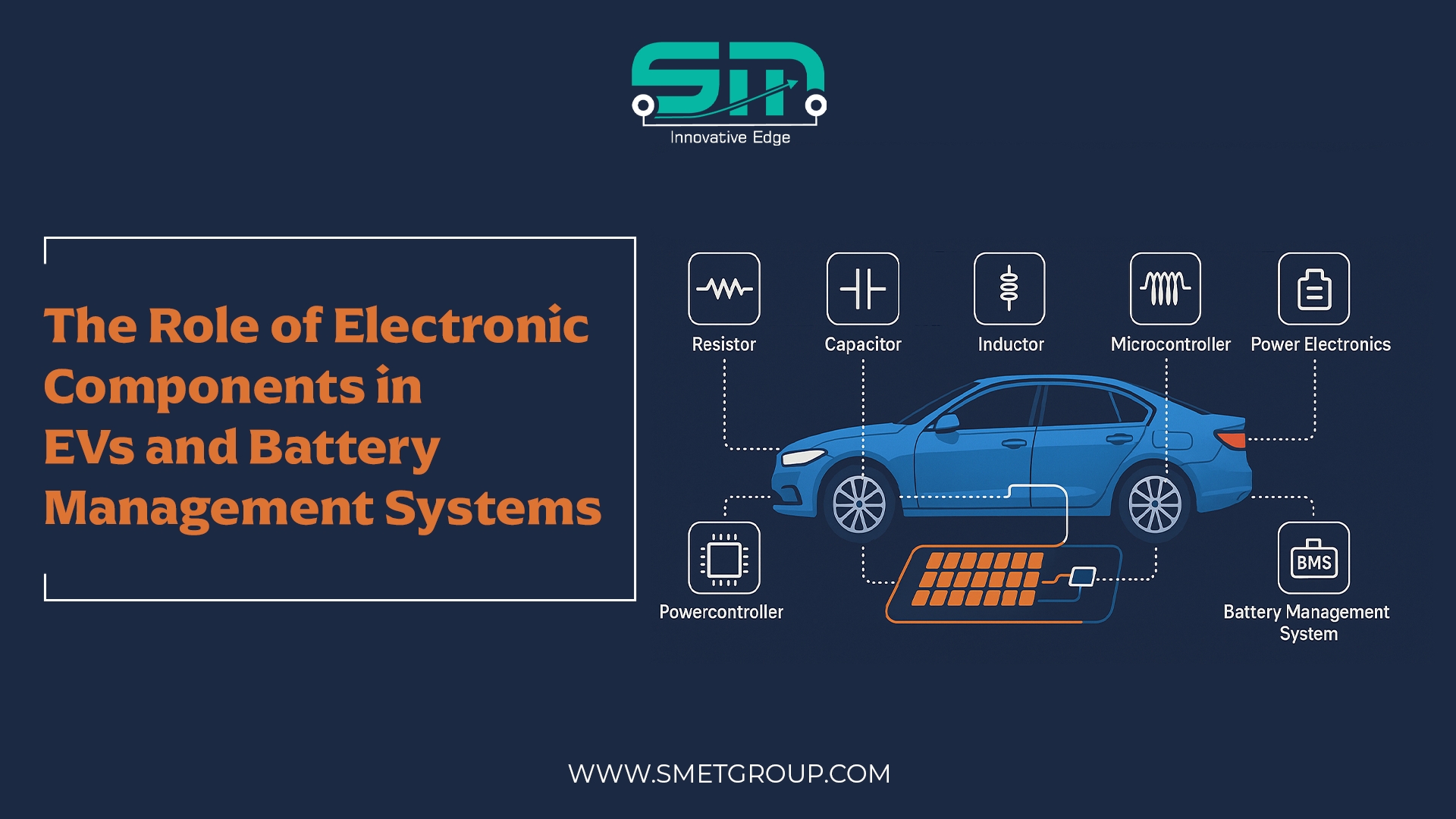Electronic components serve as the foundation of electric vehicles (EVs) and Battery Management Systems (BMS), ensuring optimal efficiency, safety, and reliability. In this blog, we'll explore the essential electronic components and their critical roles in powering the future of e-mobility.
𝟏. 𝐌𝐢𝐜𝐫𝐨𝐜𝐨𝐧𝐭𝐫𝐨𝐥𝐥𝐞𝐫𝐬 (𝐌𝐂𝐔𝐬):
MCU serves as the brain of the BMS, processing data from sensors and making decisions in real-time.
𝟐. 𝐁𝐚𝐭𝐭𝐞𝐫𝐲 𝐌𝐨𝐧𝐢𝐭𝐨𝐫𝐢𝐧𝐠 𝐈𝐂𝐬:
It accurately monitors cell voltage, temperature, and current to detect anomalies and prevent failures.
𝟑. 𝐌𝐎𝐒𝐅𝐄𝐓𝐬 𝐚𝐧𝐝 𝐈𝐆𝐁𝐓𝐬:
Handles high current switching and power control in EV drive trains and battery charging circuits.
𝟒. 𝐂𝐚𝐩𝐚𝐜𝐢𝐭𝐨𝐫𝐬 𝐚𝐧𝐝 𝐈𝐧𝐝𝐮𝐜𝐭𝐨𝐫𝐬:
Stabilize power supply, manage noise, and filter voltage during charging/discharging cycles.
𝟓. 𝐂𝐮𝐫𝐫𝐞𝐧𝐭 𝐚𝐧𝐝 𝐕𝐨𝐥𝐭𝐚𝐠𝐞 𝐒𝐞𝐧𝐬𝐨𝐫𝐬:
Measure parameters that are crucial for energy management and diagnostics.
𝟔. 𝐂𝐨𝐦𝐦𝐮𝐧𝐢𝐜𝐚𝐭𝐢𝐨𝐧 𝐈𝐧𝐭𝐞𝐫𝐟𝐚𝐜𝐞𝐬 (𝐂𝐀𝐍/𝐋𝐈𝐍/𝐔𝐀𝐑𝐓):
Enable data exchange between the BMS, motor controller, and other modules for seamless operation.
𝟕. 𝐓𝐡𝐞𝐫𝐦𝐢𝐬𝐭𝐨𝐫𝐬 𝐚𝐧𝐝 𝐓𝐞𝐦𝐩𝐞𝐫𝐚𝐭𝐮𝐫𝐞 𝐒𝐞𝐧𝐬𝐨𝐫𝐬:
Monitors cell temperature to prevent overheating and thermal runaway.
𝟖. 𝐏𝐫𝐨𝐭𝐞𝐜𝐭𝐢𝐨𝐧 𝐃𝐞𝐯𝐢𝐜𝐞𝐬 (𝐓𝐕𝐒 𝐝𝐢𝐨𝐝𝐞𝐬, 𝐅𝐮𝐬𝐞𝐬):
Guard against overvoltage, overcurrent, and ESD to ensure system reliability.
The success of electric vehicles depends on the quality and performance of the electronic components. As the EV industry evolves, innovation in electronic components continues to shape more efficient and intelligent electric mobility solutions.
Are you looking for top-quality electronic components? Get in touch with us today https://www.smetgroup.com/contact

